Introduction
The UP Review Officer (RO) and Assistant Review Officer (ARO) Examination is one of the most competitive recruitment exams conducted by the Uttar Pradesh Public Service Commission (UPPSC). Thousands of aspirants appear every year with the dream of securing a respectable government job in the state. With UP ARO/RO Exam 2025 approaching, it becomes essential to understand the syllabus, exam pattern, and the right preparation strategy in detail.
This comprehensive guide will cover every aspect of the exam – from syllabus breakdown to subject-wise preparation strategy, recommended books, and tips to avoid common mistakes.
1. Overview of UP ARO/RO Exam 2025
The competition is tough, but with smart preparation and consistent practice, clearing the exam becomes achievable.
2. UP ARO/RO Exam Pattern 2025
Prelims Exam
Mains Exam
Typing Test / Computer Knowledge
3. Detailed Syllabus for UP ARO/RO Exam 2025
Prelims Syllabus
Mains Syllabus
4. Preparation Strategy for UP ARO/RO Exam 2025
Step 1: Understand the Syllabus Thoroughly
Step 2: Build a Strong Foundation with NCERTs
Step 3: Refer to Standard Books
Step 4: Current Affairs Integration
Step 5: Daily Hindi Practice
Step 6: Answer Writing for Mains
Step 7: Typing Test Preparation (For ARO)
5. Time Management Strategy
6. Common Mistakes to Avoid
7. Recommended Booklist for UP ARO/RO 2025
8. Role of Mock Tests
9. Last Month Strategy
Give at least 5 mock tests in the last 15 days.
Practice answer writing for 2 hours daily.
Revise short notes, maps, current affairs.
Focus completely on revision.
Practice Hindi mock papers for grammar, essay, and drafting.
Analyze mistakes and revise weak areas.
Take at least 20–25 full-length mock tests before Prelims.
Previous Year Papers of UP RO/ARO
Balram Keshri – Hindi Grammar
Ramesh Singh – Economy (Basics)
M. Laxmikant – Indian Polity
NCERTs (6–12) for Geography, Polity, and Economy
Spectrum – Modern Indian History
Lucent’s General Knowledge
Ignoring PYQs – these give the best idea of the exam trend.
Lack of revision before the exam.
Over-dependence on coaching notes without self-study.
Not practicing typing for ARO posts.
Ignoring Hindi preparation and focusing only on GS.
Revise static + current affairs regularly.
Practice 1 essay every week.
Focus on Essay, Answer Writing, and Drafting.
Mains Stage:
Evening: Hindi Practice + Mock Tests
Afternoon: History/Geography/Polity (rotate daily)
Morning: Current Affairs + GS Revision
Prelims Stage:
Accuracy matters more than speed.
Speed should be at least 25–30 words per minute.
Practice Hindi typing on Krutidev or Mangal font.
Include facts, examples, and quotes where possible.
Focus on clarity, presentation, and logical flow.
Practice writing 250–300 word answers daily.
Focus on official letter drafting style, vocabulary, and error correction.
Since Hindi has a major weightage, practice essays, precis, and drafting daily.
Link current issues with static subjects (e.g., environment, polity, economy).
Revise monthly current affairs notes.
Hindi: Balram Keshri Hindi Grammar, previous years’ papers
Current Affairs: The Hindu, Indian Express, or monthly magazines (Vision IAS, Drishti, etc.)
Economy: Ramesh Singh (Basics)
Geography: NCERT + Atlas (Oxford/Orient BlackSwan)
Polity: M. Laxmikant
History: Spectrum (Modern India), Lucent’s General Knowledge
Make short notes for revision.
Read NCERTs from Class 6–12 for History, Geography, and Polity basics.
Divide it into daily, weekly, and monthly targets.
Print the official syllabus and keep it handy.
Current Topics of National and International importance
Science and Technology
Politics, Social Issues, Economy, Environment
Literature and Culture
Hindi Essay
Grammar and Vocabulary
Translation from English to Hindi and vice versa
Official Letter and Noting Draft
Essay Writing in Hindi
Precis Writing
General Hindi & Drafting
Science and Technology
Economy, Trade, and Agriculture
Geography, Environment, and Ecology
Indian Polity, Constitution, and Governance
Current Affairs (National & International)
Indian History, Culture, and National Movement
General Studies
Hindi Grammar (Sandhi, Samas, Alankaar, Tenses, Gender, Vachan)
Word Usage and Vocabulary
Correction of Sentences
Idioms and Phrases
One-word Substitution
Synonyms & Antonyms
General Hindi
Everyday Science and Computer Knowledge
General Mental Ability, Reasoning
International Affairs and Institutions
Population, Ecology, and Urbanization (in Indian context)
Indian Agriculture, Commerce & Trade
General Science and Current Affairs
Geography of India & World
Indian Polity, Economy, and Culture
History of India & Indian National Movement
General Studies
For ARO posts, candidates must qualify a Hindi typing test on a computer.
Total: 340 marks
Paper III – Hindi Essay: 120 marks, 3 hours
Paper II – General Hindi & Drafting (Conventional): 100 marks, 2 hours 30 minutes
Paper I – General Studies: 120 marks, 2 hours
Total: 200 marks
Paper II (General Hindi): 60 marks, 1 hour
Paper I (General Studies): 140 marks, 2 hours
Typing Test/Computer Knowledge (for ARO post)
Mains
Prelims
Stages:
Mode of Exam: Offline (Pen-Paper based)
Posts: Review Officer (RO), Assistant Review Officer (ARO)
Conducting Body: Uttar Pradesh Public Service Commission (UPPSC)

Lakshya IAS
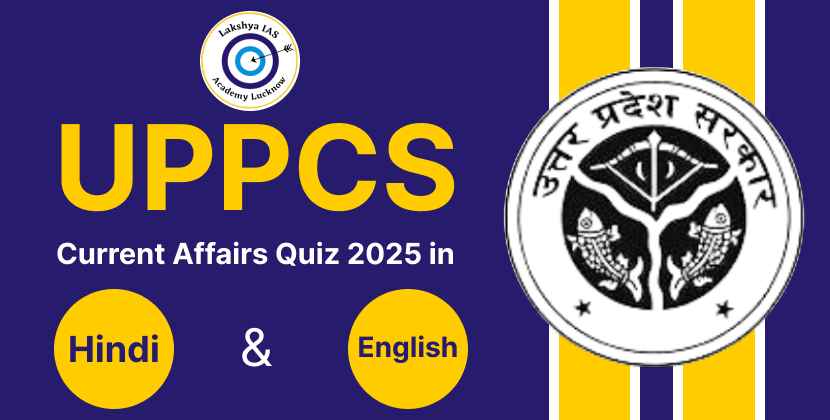
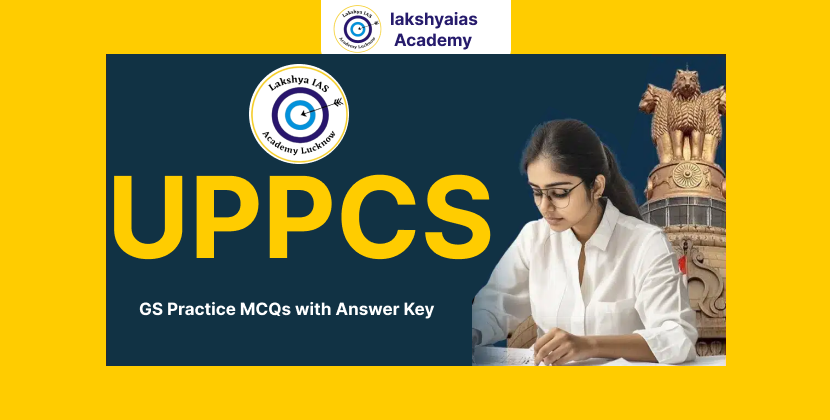
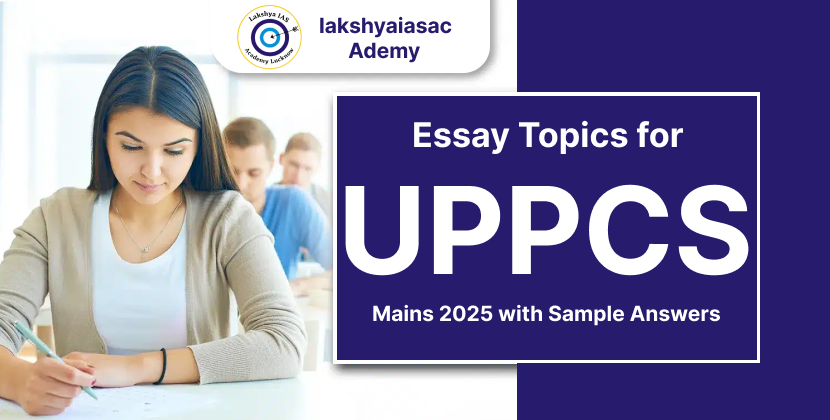
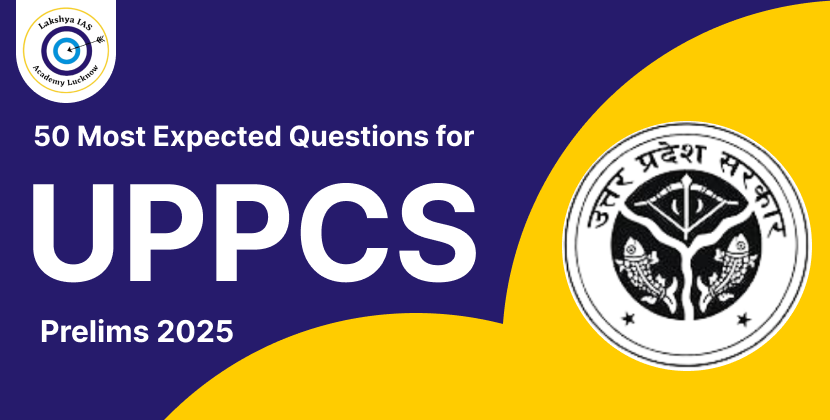
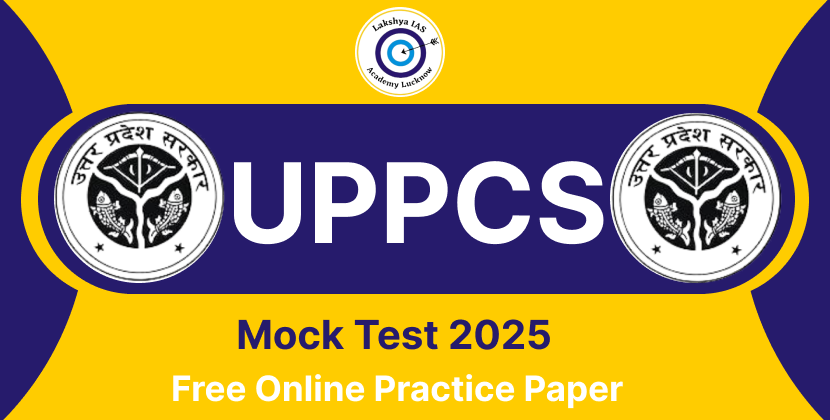
.png)
.png)

.png)
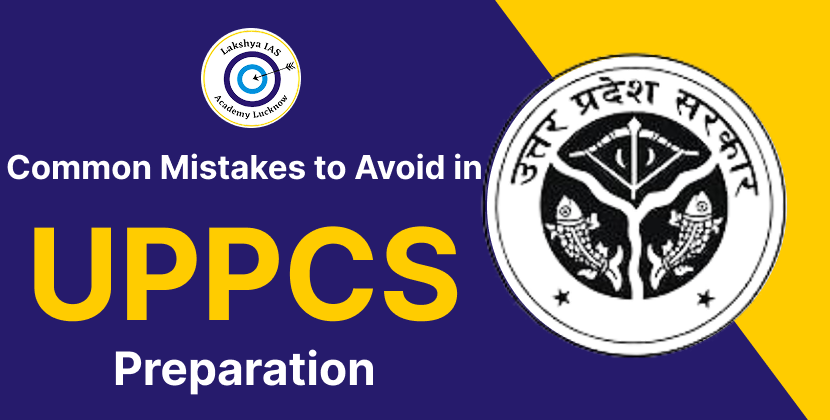
Leave a Comment